2.2 All cells arise from other cells
1/17
Earn XP
Description and Tags
Name | Mastery | Learn | Test | Matching | Spaced |
|---|
No study sessions yet.
18 Terms
Summarise Interphase
DNA replicates, leading to 2 chromatids joined at a centromere.
number of organelles and volume of cytoplasm increases
Summarise Mitosis
nucleus divides to produce two nuclei with identical copies of DNA produced by parent cell
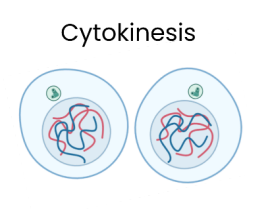
Summarise Cytokinesis
cytoplasm and cell membrane divide to form 2 new genetically identical daughter cells
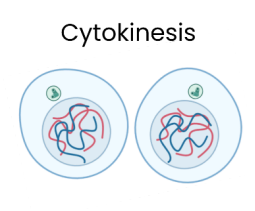
Why do cells undergo mitosis?
Growth, Replacing cells and asexual reproduction
How do prokaryotic cells replicate?
Binary fission
Describe stages of binary fission
Replication of circular DNA and plasmids. Division of cytoplasm to produce two daughter cells. There is a single copy of circular DNA however variable number of copies of plasmids.
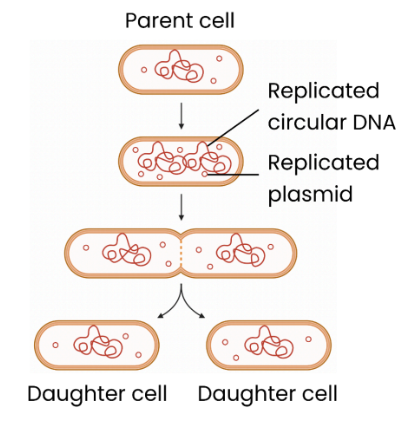
How do viruses replicate?
They do not undergo cell division as they are non-living.
Attachment proteins attach to complementary receptors on host cell. Viral nucleic acid is injected into host cell.
Infected Host cell replicates virus particles.
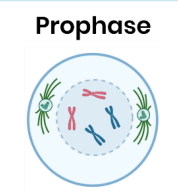
Summarise prophase
Chromosomes condense and appear as 2 sister chromatids joined by a centromere.
The nuclear envelope breaks down and the centrioles move to opposite poles, forming spindle network.
Spindle fibres start to attach to chromosomes by their centromeres.
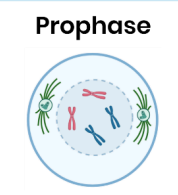
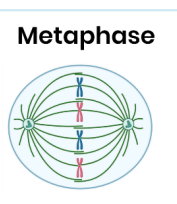
Summarise metaphase
spindle fibres attach to chromosomes by their centromeres and chromosomes align along the equator of the cell.
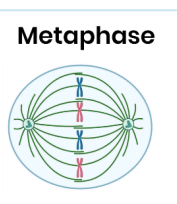
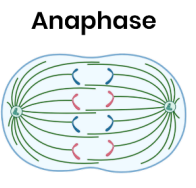
Summarise anaphase
spindle fibres contract and the centromere divides, pulling chromatids (from each pair) to opposite poles of cell as cell begins to divide.
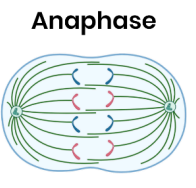
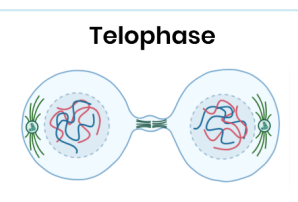
Summarise telophase
chromosomes uncoil and become longer/thinner. The nuclear envelope reforms and produces 2 nuclei.
The spindle fibres/ centrioles break down.
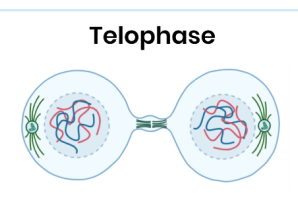
Why do some eukaryotic cells not undergo the cell cycle?
Within multicellular organisms, not all cells retain the ability to divide (e.g. neurons).
Only cells that to retain this ability go through a cell cycle.
Explain the importance of mitosis in the life of an organism
Growth of multicellular organisms by increasing cell number.
Replacing cells to repair damaged tissues.
Asexual reproduction
How to tumours and cancers form?
Mutations in DNA/ genes controlling mitosis can lead to uncontrolled cell division.
Tumour is formed if this results in a mass of abnormal cells.
What are the two types of tumour?
Malignant and Benign
What is a malignant tumour?
cancerous → can spread
What is a benign tumour?
non-cancerous → does not spread
How can cancer treatments control the rate of cell division?
Some can disrupt spindle fibre activity/ formation. → so chromosomes cant attach to spindle by their centromere.
→ so chromatids cant be separated to opposite poles (No anaphase)
→ so prevents/ slows mitosis
Some prevent DNA replication during interphase
→ so cant make 2 copies of each chromosome (chromatids)
→ so prevents/ slows mitosis